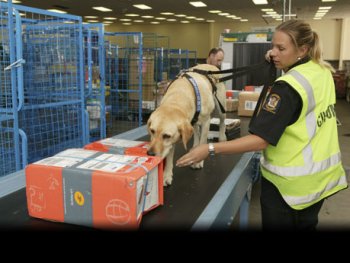
PSA report has major implications for New Zealand’s multi-billion dollar flower growing industry.
New Zealand Flower Growers Association President Daniel Schuurman says he will meet with MPI again shortly to discuss their risk assessment process, following the independent report into how the devastating kiwifruit vine disease Psa came into this country.
The Australian report couldn’t identify exactly how Psa got into the country but identified shortcomings in New Zealand’s biosecurity system.
Mr Schuurman says he wants to meet again with the MPI specified flower growers account manager in light of the Psa report.
“We want to discuss how the Psa problem arose and the affect this could have on the ongoing issues around the importation of cut flowers and foliage. Although in this case Psa doesn’t have a direct correlation to the flower industry, it does highlight what we have been saying for a long time, that the MPI risk assessment is faulty.”
Mr Schuurman says he welcomes the independent review.
“While the results of that report, pointing out shortcomings at MPI, aren’t a huge surprise, any review of MPI processes is useful. We have been talking to MPI for a number of years about their risk assessments which we think are not up to where they should be.”
Mr Schuurman says there is a lack of consultation with industry, and the MPI risk assessment processes are often out of date.
“Sometimes MPI are overly cautious and take too long to assess a risk which then becomes out of date. They are also reluctant to involve industry fearing they have their own axe to grind, but industry has the best knowledge of the bio security risks they are facing.”
Mr Schuurman believes the risk assessments are often weighted towards the requirements of the World Trade Organisation rather than protecting our environment.
“In the case of the flower growers industry there are two different pathways which products come in from overseas; flowers and foliage that come in under quarantine as new material for growers, and cut flowers and foliage for retail. At the moment the bio security requirements are much more stringent for new plant material than for retail flowers, yet both carry risks.”
Mr Schuurman says he has already argued bio security rules for both imports should be reassessed by MPI and he now intends to take the Association’s case back to the MPI following the Psa report.
The PSA disease swept through Bay of Plenty kiwifruit orchards wiping out many gold vines and caused about 400 million dollars in losses.
The New Zealand Kiwifruit Growers organisation says it is concerned enough about the failings identified by the review to seek legal advice on whether any further action should be taken. It says many growers have lost all or part of their livelihoods as a result of PSA coming into New Zealand.
Contact:
New Zealand Flower Growers Association President Daniel Schuurman
021 190 1051



 Classifieds
Classifieds



